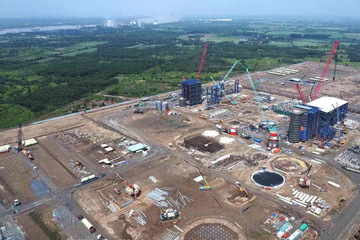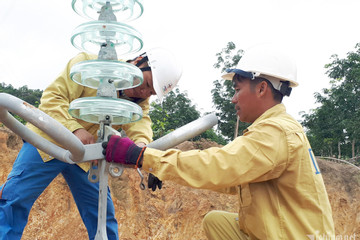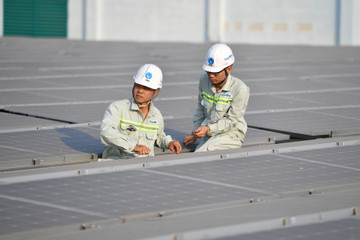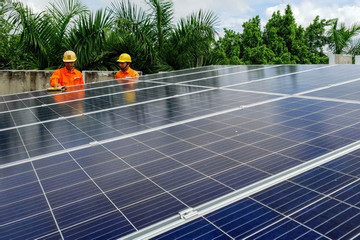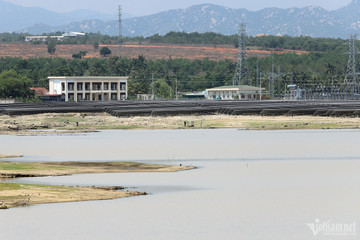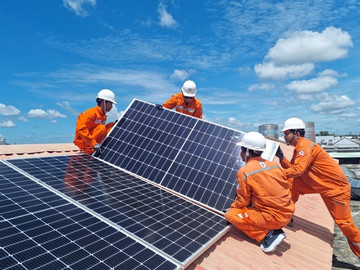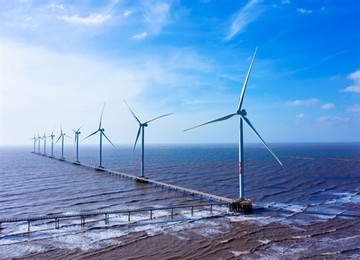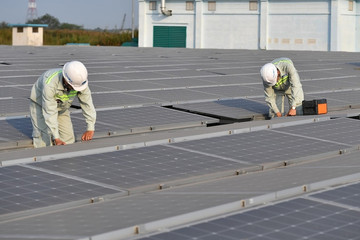- © Copyright of Vietnamnet Global.
- Tel: 024 3772 7988 Fax: (024) 37722734
- Email: [email protected]
renewable energy
Update news renewable energy
Vietnam climbs to 32nd in world energy transition rankings
Learn about the key factors contributing to Vietnam's 32nd rank in the clean energy transition index and what lies ahead for its sustainable energy journey.
Renewable energy allowed to be traded directly
Producers and customers can now directly buy and sell clean energy through a power purchase agreement, with electricity prices determined by mutual agreement between both parties.
FIT pricing scheme for renewables no longer reasonable: Ministry
Regarding policies for renewables development, the Ministry of Industry and Trade (MOIT) believes that it is time to shift from support to competition policies.
Vietnam Energy Outlook Report 2024 launched
With enormous potential for solar power, onshore and offshore wind power, Vietnam is well positioned to transform its energy sector from fossil fuels to renewable energy and leverage its national resources.
How high should renewable-power prices be?
The government of Vietnam needs to set renewables prices at reasonable levels that can benefit investors, EVN and consumers, experts say.
Vietnam joins world’s ‘clean energy train’
LNG (liquefied natural gas) is considered the trump card of clean energy trends. Vietnam is following the trend, having committed to reduce net emissions to zero by 2050.
Government urged to create legal framework for LNG imports
Experts believe that use of LNG (liquefied natural gas) will continue, but Vietnam still doesn’t have a legal framework on LNG import and business.
The rapid development of solar and wind power in Vietnam
Since 2017, many solar power and wind power projects have been implemented in Vietnam, marking the country as a bright spot on the world's renewable energy map.
DPPA draft decree submitted to the Gov’t for consideration
The Ministry of Industry and Trade has submitted the long-waited draft decree on direct purchase agreement (DPPA) to the Government for approval.
Twenty-nine renewable energy projects connected to national grid
Twenty-nine renewable energy projects with a total capacity of more than 1,577 MW have been supplying energy to the national power grid.
VN wants to develop renewable power sources by using 'direct purchases'
Electricity of Vietnam (EVN) president Dang Hoang An believes that it is possible to create a direct power purchase market with no limitations in terms of buyers and sellers.
VN needs to prioritise non-traditional energy source development
This strategic move is crucial for the nation to attain its target of net-zero emissions by 2050.
LNG-fired power too expensive, pricing problems remain unsettled
LNG-fired power is seen as a good solution to emission reductions because power plants running on LNG generate 50 percent fewer CO2 emissions than one burning coal. But production costs will be high, VND2,400-2,800/kwh.
Government promotes renewable-electricity policy
Now implementing the eighth national power development plan in 2021-2020 (Plan 8), the government has requested the Ministry of Industry and Trade (MOIT) to urgently fulfill procedures to create policies for renewable electricity development.
National Power Plan 8 needs clarifications: experts
After the Prime Minister released Decision 500 approving the eighth national power development plan (Plan 8), agencies and investors were expecting an overall plan, open and transparent, that guides the implementation of the plan.
VCCI proposes power transactions between residents living in same buildings
VCCI has proposed that the Ministry of Industry and Trade (MOIT) amend current regulations and allow clients in the same buildings to sell or buy rooftop solar power directly to each other without transmitting electricity through the national grid.
Solar power projects found breaching regulations
The Government Inspectorate has forwarded dossiers about four power projects in Ninh Thuan to the Ministry of Public Security for investigation. Meanwhile, two floating solar power projects in Ba Ria – Vung Tau have been found violating the Land Law.
VN’s renewables need long-term strategy and faster localisation
Without a long-term strategy and faster localisation, Vietnam's energy sector could very well fall short in the competition for renewable energy market share on home ground, said industry insiders and experts.
Vietnam stays committed to developing clean and renewable energy
Vietnam remains committed and focused on enhancing the development of hydrogen energy production and hydrogen-source fuels in regions with potential and advantages in renewable energy, close to major consumer markets.
Zero-VND rooftop solar power scheme to quell ‘clean power’ strategy
The draft of the dossier proposing the compilation of a decree on rooftop power development has been opened for public opinion.












